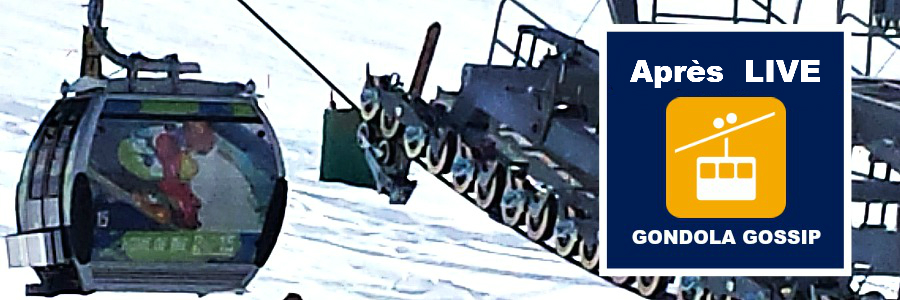Gondola Gossip

Riding chair lifts and gondolas as much as we do you're bound to meet some unique characters with some interresting stories and gossip to share.
Event Fatigue?
What comes to mind when you think of
the names
First, it is important to point out
not every mountain town is created equal, with the same
audiences, facilities and event cycles. But, the increasing
number of travelers and prices do impact the majority of locals
and visitors alike in popular resort destinations. We would all
be naïve if we discounted the importance and impact of tourism
on the state and local economies and property values. It seems a
small number of disgruntled and vocal locals who complain about
events and crowds are really trying to find a way to put the
toothpaste back in the tube at this point.
The idea of event fatigue doesn't
seem to apply to the same weekly markets and local music over
and over does it? And if these events happen every week then the
only way to grow and include other music and attractions is to
add more events to the calendar. Unless… you propose
eliminating duplicate and similar events of local promoters who
have had those dates monopolized for years? Good luck with that.
Perhaps events, target audiences and facilities need to be
evaluated and managed more effectively and efficiently for the
challenges of today. Unless… you propose getting rid of all free
events for locals, because there are too many events in some
opinions?
Instead let's consider a more
realistic compromise. Sometimes it's not too many events that is
at the heart of the issue… it’s the types of events. Some events
are annual traditions and they will include crowds, parades and
road closures like it or not. But times have changed… property
values and tax revenues grew along with the crowds.
Unfortunately, events and promoters have been slow to change
with the times and needs of the community. The event landscape
is dominated by one-day and FREE events closing down streets
without the needed return on the investment.
One example are bike races. Back when
the roads were not packed with vehicles coming and going these
were great opportunities. But, today big sponsorship, lodging
and hospitality spending are necessary to move the needle.
Remember the original purpose of having events was to bring
people to spend money at local businesses. Sad but true, today's
mountain town rents and bills are not going to be paid by free
events with small local audiences and visitors filling water
bottles and camping outside of town. So events benefiting a
select few have to be weighed against the over-all economic
impact to all sectors of the local business community.
It seems the focus is too often on
events driven by public consumption and vendors that are
competing with our local bars, restaurants and retailers instead
of complimenting them. Annual food and beverage festivals should
be more than enough, but it seems there are far more beer, wine
and liquor events promoting intoxication over the destination.
Perhaps these are the crowd and noise elements that could be
managed more effectively? Local businesses and employees should
not be forced to pay extra to participate or have to compete
with out of town vendors and distributors every weekend. Maybe
there is some expense fatigue too. Common sense may dictate
striking a balance between fresh ideas and modern event
strategies to compliment established events and long-time
traditions creating a modern recipe for event success.



